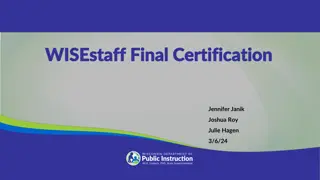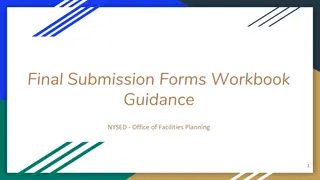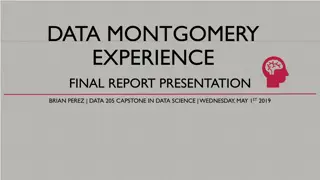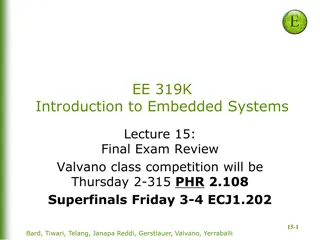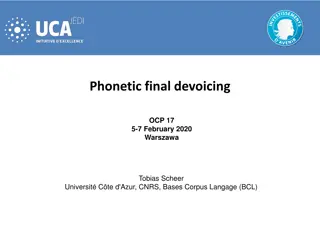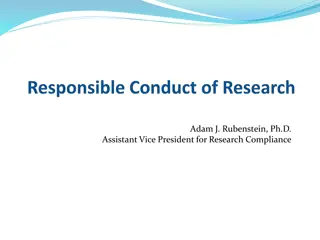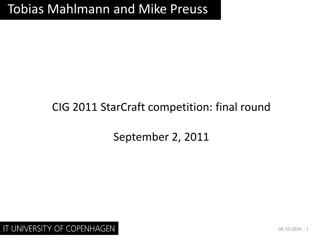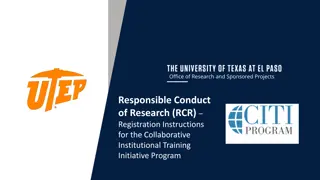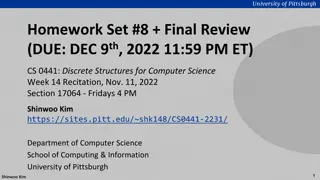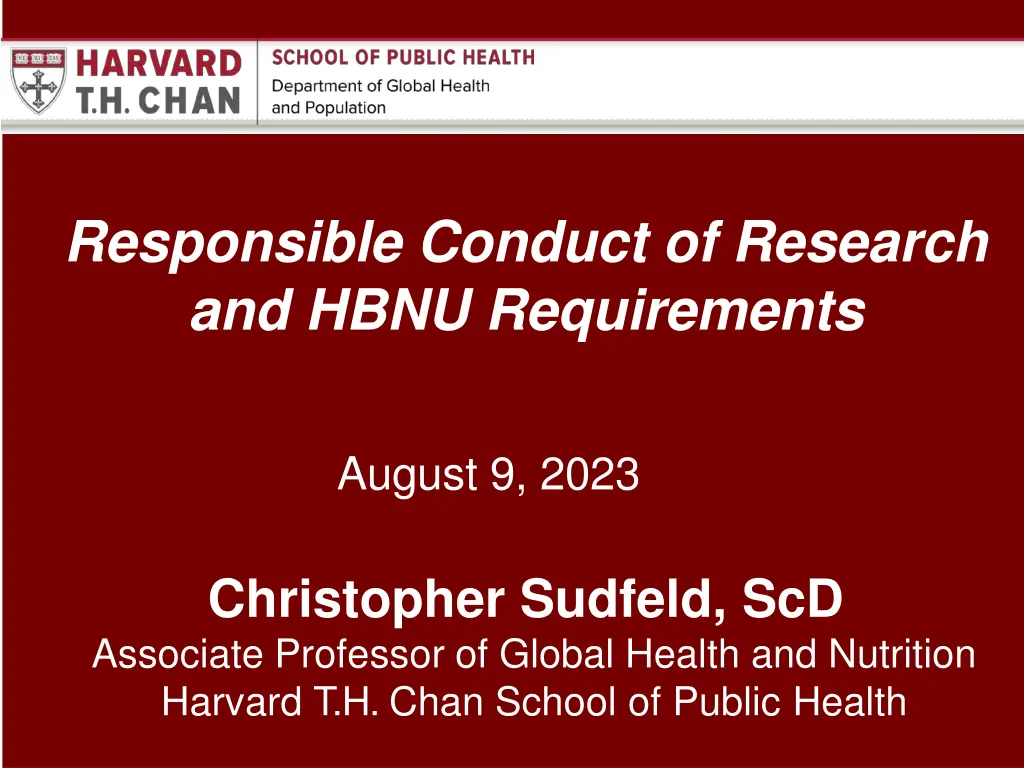
Responsible Conduct of Research and HBNU Requirements by Christopher Sudfeld, ScD
Explore the essential aspects of research ethics and requirements outlined by Christopher Sudfeld, ScD, for the Harvard T.H. Chan School of Public Health. Topics include human subjects research, data security, and monthly progress updates for HBNU fellows. Stay informed on CITI Program completion, IRB procedures, and the distinction between human and non-human subjects research.
Download Presentation

Please find below an Image/Link to download the presentation.
The content on the website is provided AS IS for your information and personal use only. It may not be sold, licensed, or shared on other websites without obtaining consent from the author. If you encounter any issues during the download, it is possible that the publisher has removed the file from their server.
You are allowed to download the files provided on this website for personal or commercial use, subject to the condition that they are used lawfully. All files are the property of their respective owners.
The content on the website is provided AS IS for your information and personal use only. It may not be sold, licensed, or shared on other websites without obtaining consent from the author.
E N D
Presentation Transcript
Responsible Conduct of Research and HBNU Requirements August 9, 2023 Christopher Sudfeld, ScD Associate Professor of Global Health and Nutrition Harvard T.H. Chan School of Public Health
Zoom Issues 1) Please mute when you are not speaking 2) Wait to ask questions until dedicated Breaks for Questions
Todays Agenda 1. Objective of the Seminars 2. Responsible Conduct of Research for Fellows 3. Data Security for Fellows 4. Monthly Progress Updates 5. HBNU Announcements and Questions
Purpose of Fogarty Seminars First Wednesday of the Month Seminar on aspects of research, grants, and leadership Progress Updates from pre-selected HBNU Fellows Program Announcements Continue to strengthen connections between our Fogarty Family
CITI Program All Fellows are required to complete the CITI Human Subjects Program and send the completion certificate to Kelsey
What is Human Subjects Research? Living Individuals about whom an investigator conducting research obtains: (1) Data through intervention or interaction with the individual (2) Identifiable private information Source: NIH2007
What is Non-Human Subjects Research? Research that does not meet the criteria for human subjects research (1) Data does not involve intervention or interaction with an individual (2) No Identifiable private information Examples: Animal studies, publicly available DHS Survey Data, De-identified pathology specimens, De-identified study data Source: NIH2007
IRBs in HBNU Work with your Local and US Mentors to determine appropriate local, US and other IRBs relevant for your research project Parent Study Amendment Human vs non-Human subjects
Protocol and Consent Forms Ask Mentors for protocols and/ consent forms to inform structure, style, and required information IRBs may require protocols to be in different structure, may have cover pages, supplemental forms, Data Transfer Agreements, other documents Payment for IRB submission
Breakout Session 15 min 1) What IRB(s) will or are currently reviewing your research project? (Institutional and National IRBs may be applicable) 2) Is your work Human Subjects or Non-human subjects research? 3) Are you submitting a new IRB application or an amendment to an existing approved study? 4) What documents and fees are required for your IRB submission(s)? 5) How will the application be submitted to the IRB(s)? (Paper, online, etc) 6) What is the estimated timeline for submission, review, revisions/clarifications on IRB comments/questions, and the approval for each of your IRB(s)?
Monthly Progress Updates Monthly progress for each of your project Specific Aims Present Activities, Progress, and Challenges HBNU team will regularly review these updates and you will also present to the group in seminar
Example of Report Kyle Yoo Descriptive Aim 2: To describe hospital-level administrative and management practices and strategies that target improving acute cardiovascular healthcare quality and safety through semi-structured interviews. Activities/progress in the past month (including overcoming challenges from lastmonth): 1. Hired a research associate 2. Recruitment - in progress 3. Preparation for datacollection Challenges tosuccess: 1. Finding someone (preferably from Kerala) who is familiar with healthcarework 2. Recruitment is difficult 3. Anticipating changes to recruitmentmethods 4. Working with a research associate in Kerala from Delhi 5. Logistics Funding (paying for research associate salary) - inprogress accommodating research subject schedule - in progress Relocating from Gurgaon/Delhi to Kerala - in progress Strategies to cover more than 600 km of distance in Kerala while minimizing fatigue and cost and 6. (minor) Setting up REDCap database viaVPN
PowerPoint Slides for Presentation Present for 5 Minutes on Updates and Challenges Maximum 7 slides including objectives and progress.
Publications, Presentations and Acknowledging HBNU
Reporting Funding Required to acknowledge HBNU funding for publications, conference presentation, etc resulting from your work. Report funding for your main project & Other manuscripts/ presentations you work on during your fellowship year that can be considered a part of your training. Standard language Research reported in this publication was supported by the Fogarty International Center and National Institute of Mental Health, of the National Institutes of Health under Award Number D43 TW010543. The content is solely the responsibility of the authors and does not necessarily represent the official views of the National Institutes of Health. **For trainees supported by specific institutes, NIDDK, NIDCD, NICHD, NIBIB, Team will send sent you additional wording**
Thank you! Chris Sudfeld, ScD csudfeld@hsph.harvard.edu



